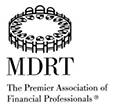UK savers keen to limit the impact of inheritance tax on their estate often find that trusts can be a valuable option to consider. This is because, if specific conditions are met, assets like property, investments and even cash placed in a trust no longer belong to you. As a result, they may not be part of the calculation of the inheritance tax bill paid by your beneficiaries after your death.
Understanding trusts
Trusts offer way of managing your assets. They provide protection for your various assets and can be set up in your lifetime or when you die. However, a key benefit of establishing a trust while you’re alive us that you can dictate who manages it and who will benefit from it.
In simple terms, trusts are legal arrangements enabling you to pass investments, property or cash to an individual so they can take care of them to benefit a third individual.
Breaking down those involved in a trust
There are three key parties involved in a trust. The trustee is the person in possession of the assets held in trust. The beneficiary is the individual that the trust was established for and who the assets are held for. Finally, the settlor is the person who sets up the trust or supplies the assets held within it.
Trusts are often considered a firm foundation for efficient estate planning. However, they can be complex options to get to grips with and a diverse range of different trusts are available to select from. For a clear view of IHT, trusts, estate and retirement planning in Shropshire and Chester, get in touch with Hartey Wealth Management today.











